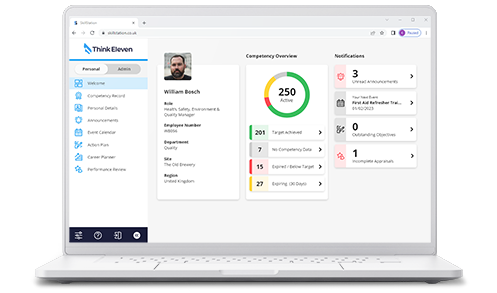Trauma Awareness eLearning Course
Overview
How much we understand trauma and the impact it has on individuals can have a massive effect on the service we’re able to provide. Trauma informed care allows service users to feel more supported and understood by those providing care, helping them to heal. But becoming trauma informed and providing the right care requires a commitment and understanding of the impacts that trauma can have on those who have experienced it. There is no end state to becoming trauma informed – it’s a continuous, necessary process. This course will ensure you have the knowledge you need to move towards becoming trauma informed.
Objectives
- Understand different types of trauma and how they relate to ACEs and stress
- Recognise the risk factors and protective factors of trauma
- Appreciate the effect of trauma on individuals throughout their life (children and adults)
- Have an awareness of how trauma affects the developing brain
- Grasp the preventative approach and why it’s necessary
- Be aware of the recommended approaches that practitioners should take when preventing and dealing with trauma
- Know the background to trauma informed care and why it’s needed
- Understand what trauma informed care looks like in different organisational settings
- Be aware of the levels and principles which build up trauma informed care
- Describe common misconceptions of trauma informed care and the truth against them
- Learn the difference between ‘trauma informed’ and ‘trauma specific’
- Explore the process of becoming trauma informed
- Be aware of how to implement trauma informed care into your practice
- Know how to provide trauma informed care for people with disabilities
- Understand multi-agency meetings and how to conduct one
- Understand how trauma informed practice differs from standard practice
- Be able to connect with the person, not their behaviour
- Learn how to empower people to understand their trauma
- Know how to effectively and carefully engage with victims of trauma to support them
- Appreciate gender differences in trauma
- Be aware of the effects that can impact staff
- Know how to work with adults who have experienced trauma
- Be able to recognise secondary traumatic stress in staff
- Understand what needs to be done to promote trauma informed practice
Modules
- Introduction to Trauma
- Trauma Informed Care
- Becoming Trauma Informed
This course has a minimum of 25 learner registrations for us to provide a quotation.
Request a Quotation- Language
- UK
- Date last updated
- 6/27/2022
- Duration
- 1 Hour 45 Minutes
- Suitable Devices
-
- PC
- Phone
- Tablet
- Audio is Required
-
- Optional
- Includes Video
-
- Yes
- Downloadable Resources
-
- Linked within Course
- Completion Criteria
-
- Pass final test
- Visit all pages
- Pass Mark
-
- 80% pass mark required
- Course Technology
-
- HTML5
- SCORM 1.2
- Can be customised
-
- Available at an Additional Cost
- Accreditation or Endorsements
-
- CPD
- Languages
-
- English
